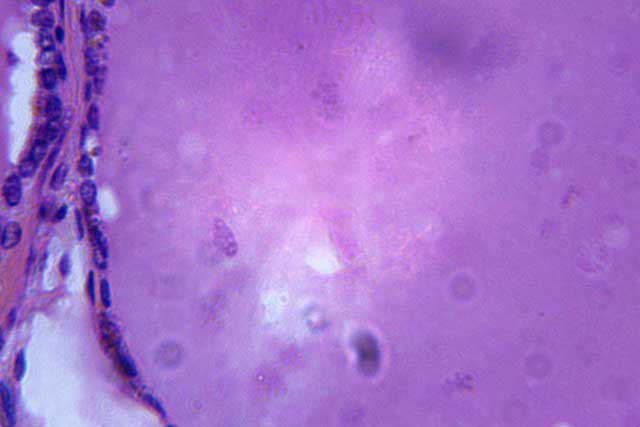Two immunotherapy regimens currently approved by the US Food and Drug Administration (FDA) for treating melanoma may also be an option for treating a rare and aggressive form of papillary thyroid cancer, according to research presented at the 2017 American Society of Clinical Oncology (ASCO) Annual Meeting.
Researchers from The Ohio State University Comprehensive Cancer Center reported that dabrafenib (Tafinlar) and the combination of dabrafenib/trametinib (MeKinist) are well tolerated therapies and result in similar high objective response rates with durable responses in patients with progressive BRAF-mutated papillary thyroid cancer.
In a randomized, phase 2 multicenter clinical study, investigators tested the effectiveness of dabrafenib given alone or in combination with trametinib to treat a subset of patients with advanced papillary thyroid cancer with BRAF mutations. The study included 53 patients (median age, 63 years; 38 females) with progressive BRAF-mutated progressive papillary thyroid cancer. Median follow-up was 13 months.
Initial data shows that both dabrafenib alone and combined dabrafenib/trametinib therapy are well tolerated by patients, resulting in a 50% to 54% response rate among patients with advanced BRAF-mutated papillary thyroid cancer. The study showed no clear advantage between the single and dual agent targeted therapy. However, both approaches resulted in positive outcomes for patients. The researchers found that up to 44% of papillary thyroid cancer patients have a BRAF mutation that can be specifically targeted by existing cancer drugs.
